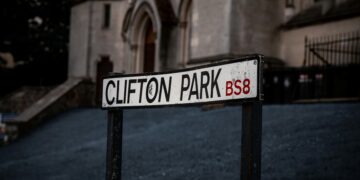Table of Contents
Introduction: The Man Who Wasn’t There
In the pantheon of modern television comedies, Parks and Recreation holds a cherished place as a beacon of relentless optimism and heartfelt character connection.
Its ensemble cast—Leslie Knope, Ron Swanson, April Ludgate, Andy Dwyer—has become iconic, their quirks and relationships etched into the pop culture lexicon.
Yet, for even the most devoted fans of Pawnee, Indiana, a jarring question lingers: “Do you remember Mark Brendanawicz?” The query often elicits a faint glimmer of recognition, a vague memory of a city planner from the early days who simply… vanished.1
He was not merely written off; he was seemingly erased from the show’s history, a main character who became a ghost in the vibrant world he helped establish.3
The departure of Mark Brendanawicz, played by Paul Schneider, was far more than a simple casting change or a footnote in the show’s production history.
It was the single most critical creative pivot the series ever made.
His exit represents the precise moment Parks and Recreation shed the skin of its less-successful creative origins, which were heavily influenced by its predecessor, The Office, and fully embraced the unique, character-driven, and joyfully optimistic identity that would elevate it to a modern classic.
The story of Mark’s vanishing act is a confluence of factors—an actor’s professional frustration, a necessary creative retooling, and a fundamental mismatch between character and series ethos.
To dissect his departure is to understand how Parks and Recreation was saved from mediocrity and forged into the beloved institution it is today.
I. The Blueprint: A Character for a Different Show
To understand why Mark Brendanawicz had to leave, one must first understand the show he was designed for—a show that ultimately never came to be.
The initial DNA of Parks and Recreation was deeply rooted in the success of The Office, a creative well from which co-creators Greg Daniels and Michael Schur both drank.5
Their initial pitch to NBC was for a “comedy version of
The West Wing,” a show that would satirize the public sector with the same mockumentary lens that The Office had applied to the private sector.7
This concept inherently carried a more cynical, grounded, and at times darker tone, which was evident throughout the show’s first season in its rigid adherence to the documentary format, a less competent and more pitiable Leslie Knope, and a suit-wearing, conventionally bureaucratic Ron Swanson.9
The Pragmatic Center
Within this framework, Mark Brendanawicz was conceived as the pragmatic and stable center.
He was the city planner, jaded and disillusioned by the slow grind of government bureaucracy, and was intended to serve as the audience’s surrogate—the “straight man” in a world of burgeoning eccentricity.11
His primary function was to be a realistic foil to Leslie Knope’s boundless, and at the time seemingly naive, enthusiasm.2
In essence, he was engineered to be the Pawnee equivalent of Jim Halpert from
The Office: the relatable, grounded observer who could telegraph the absurdity of his surroundings to the viewer.13
The very foundation of Mark’s character was inextricably linked to the show’s initial, more cynical premise.
He was a structural element designed to anchor the show in a reality that the writers and audience would soon enthusiastically abandon.
The Oscillating Concept and Original Arc
Co-creator Michael Schur later revealed that the original, long-term plan for Mark was ambitious.
The character was designed to oscillate between his government job and work in the private sector, a narrative device intended to explore the inherent tensions and differing values between the two worlds.4
This concept would have allowed the show to comment on the pros and cons of public service through a single character’s journey.6
His arc in the first season reflects this design.
He is cynical about his minor professional achievements, such as lowering a speed bump by a mere two inches, yet he is quietly inspired by Leslie’s unwavering drive, secretly convincing Ron Swanson to approve her pit project by calling in a favor.2
His romantic storylines were also meant to be foundational.
He was positioned as a key vertex in a love triangle, sharing a past fling with Leslie while developing a new relationship with her best friend, Ann Perkins.9
This structure placed him at the center of the show’s emotional and professional conflicts.
However, as the show began to evolve away from its initial blueprint, the very characteristics that made Mark central to the original concept would become the reasons he was ultimately left behind.
II. The Great Retool: How Pawnee Found Its Sunshine
The first season of Parks and Recreation was met with a critical reception that ranged from mixed to overtly negative.6
Many critics dismissed it as an inferior clone of
The Office, struggling to find its own voice.10
The most pointed criticism was aimed at Leslie Knope, who many viewers and critics perceived as a “ditzy,” unintelligent, and less-charismatic female version of Michael Scott.8
The show’s tone felt mean-spirited, as if it were mocking its characters rather than celebrating them.16
Faced with potential cancellation, the creative team orchestrated one of television’s most successful course corrections between seasons.
The Three Pillars of the Turnaround
The show’s transformation was built on three fundamental changes.
First and foremost was the recalibration of Leslie Knope.
As Michael Schur explained, the writers made a simple but profound adjustment: they changed how the other characters reacted to her.
Instead of viewing her as clueless, her colleagues began to acknowledge her intelligence, competence, and work ethic.8
This crucial shift reframed her intense passion as an admirable quality rather than a pitiable one, turning her into a hero the audience could root for.10
Second, the show leaned into its extraordinary ensemble cast.
Recognizing the immense comedic talent of actors like Nick Offerman, Chris Pratt, Aubrey Plaza, and Aziz Ansari, the writers shifted the focus from a single protagonist to a true ensemble.10
The unique quirks, character dynamics, and famed improvisational skills of the supporting cast became central to the show’s identity and humor.13
Finally, the series underwent a radical tonal shift.
The cynical, darker edge of season one was abandoned in favor of a lighter, peppier, and profoundly optimistic worldview.10
Parks and Recreation became a show about good people who, despite their eccentricities, loved their jobs and, more importantly, loved each other.
As critic Ken Tucker of Entertainment Weekly noted during the second season, Leslie had become “more sharp-tongued, less clueless, and more fearless”.19
This new, sunnier version of Pawnee was a hit with critics and audiences, saving the show from an early demise.15
Mark, The Relic of a Bygone Era
This successful evolution, however, effectively signed Mark Brendanawicz’s narrative death warrant.
He was a casualty of the show’s triumph.
As the rest of the ensemble grew more colorful, eccentric, and lovable, Mark remained the “lone straight man hold out”.4
His grounded, realistic demeanor, once intended to be the show’s anchor, now felt bland, boring, and tonally dissonant against the vibrant backdrop of the new Pawnee.10
The narrative functions he was designed to serve—as a cynical counterbalance to Leslie and a primary romantic interest—were either no longer needed in the show’s optimistic landscape or were about to be fulfilled far more effectively by new characters.4
Mark wasn’t written out because he was a bad character in a vacuum; he was written out because he was the right character for the wrong show—the show
Parks and Recreation had wisely decided not to be.
III. “A Very Strange Experience”: The Actor’s Perspective
While the writers’ room was busy reshaping Pawnee, actor Paul Schneider was experiencing a profound disconnect.
His perspective provides the crucial other half of the story, revealing a departure driven not by drama, but by a fundamental creative incompatibility.
The Core Frustration: A Bait-and-Switch
In a candid 2014 interview with ScreenCrush, years after his exit, Schneider articulated his primary frustration with the role.
“That experience was very strange for me,” he explained.
“You know, I signed up for a specific character that was changed in mid-season.
And it became a character with a lot less to do.
And, all of a sudden, I was kind of confused and kind of having a lot less to do”.9
This statement is the key to understanding his departure.
From the writers’ perspective, the show was evolving and improving.
But from the actor’s perspective, the role he had committed to—a complex character with a defined arc—had effectively been hollowed out, leaving him adrift without a clear motivation or purpose.5
The Improv Mismatch and the “Negative Feedback Loop”
The Parks and Recreation set was a famously collaborative and improvisational environment.
The writers wrote long scripts and encouraged the actors to discover new jokes and character moments on set, a process they called “plus-ing” the material.24
Much of the cast, like Amy Poehler, Aziz Ansari, and Chris Pratt, came from a strong improv-comedy background and thrived in this setting.10
Schneider, however, was a highly respected dramatic actor with a background in independent films like
Bright Star and the work of director David Gordon Green.13
His process was different.
This mismatch appears to have created what some have analyzed as a “negative feedback loop”.13
Fan analyses have pointed to scenes where other actors, even those with minor roles at the time like Retta, improvised memorable character-defining moments, while Schneider’s Mark often remained passive.13
As the other actors generated more comedic material for their characters, the writers had more to build on for them in future scripts.
Conversely, Schneider’s less improvisational style may have given the writers less to work with, leading to his character getting fewer lines and smaller storylines.
This, in turn, would have reinforced his feeling of having “less to do,” making the departure an increasingly logical outcome for both actor and producers.
The “Amicable” Split vs. The Reality
At the time of Schneider’s exit, showrunner Mike Schur presented the departure as a mutual and amicable decision.
The official narrative was that Schneider, whose film career was taking off, was leaving to pursue those opportunities, and that the door was always open for Mark to return as a guest star.6
However, Schneider’s later comments paint a different picture.
He stated unequivocally that he was never contacted about returning and, by that point, was “not interested” anyway.2
This contradiction suggests the public statements were a diplomatic framing of a more complex reality.
Schneider’s interviews reveal an artist who is selective about his work, expressing a “fuck work” attitude toward projects he doesn’t find artistically fulfilling and a desire to keep a distance from the industry machine.26
This mindset aligns perfectly with his choice to leave a role that no longer challenged or interested him.
The “amicable split” was a convenient public narrative for what was, at its core, a mutual and creatively necessary parting of ways.
IV. The Perfect Replacements: Solving the Straight Man Problem
Just as Mark Brendanawicz’s character was fizzling out, the show introduced two new figures who would not only fill his void but would perfect the show’s comedic formula.
State auditors Ben Wyatt (Adam Scott) and Chris Traeger (Rob Lowe) arrived in Pawnee in the penultimate episode of Season 2, “The Master Plan,” tasked with slashing the town’s budget.9
Their arrival immediately injected a new energy into the series, a fact noted by contemporary reviews of the season finale, which praised the new dynamic even as they bid a polite farewell to Mark.32
Ben Wyatt: The “Quirky” Straight Man
Ben Wyatt succeeded where Mark Brendanawicz had stalled because he was the perfect straight man for the new, optimistic Parks and Rec.
While Mark was defined by a bland, grounded realism, Ben was a “quirky” straight man.35
He was pragmatic and often exasperated by Pawnee’s madness, but he was also a deeply nerdy, socially awkward “human disaster” with his own hilarious and endearing baggage.37
His past political trauma as the failed 18-year-old mayor of Partridge, Minnesota, who bankrupted his town with a winter sports complex called “Ice Town,” gave him a rich backstory that the show mined for both comedy and pathos.38
His geeky passions, from
Game of Thrones and calzones to his meticulously designed board game, “The Cones of Dunshire,” allowed him to be both an observer of Pawnee’s absurdity and an active participant in it.36
Solving the Leslie Knope Romance
This nuanced characterization made Ben a far more compelling romantic partner for Leslie.
Where Mark and Leslie shared a backstory but lacked palpable on-screen chemistry, Ben and Leslie’s relationship was built on a foundation of mutual respect, intellectual sparring, and a believable “will-they-won’t-they” tension that became the show’s emotional spine.37
Ben was Leslie’s equal.
He was initially her antagonist, which created a more dynamic and engaging friction than Mark’s passive admiration ever did.32
The arc of their relationship—from adversarial colleagues to friends to a loving, supportive couple—was one of the show’s greatest triumphs and something that would have been impossible with the character of Mark.37
The following table provides a direct comparison, illustrating how Ben Wyatt was not merely a replacement for Mark Brendanawicz, but a fundamental upgrade who succeeded in every narrative function where his predecessor had faltered.
| Attribute | Mark Brendanawicz (Seasons 1-2) | Ben Wyatt (Seasons 3-7) |
| Archetype | The “Realistic” Straight Man 4 | The “Quirky” Straight Man 35 |
| Core Motivation | Disillusionment with government, seeking an exit 5 | Redemption for past failure (“Ice Town”), seeking purpose and belonging 37 |
| Personality | Jaded, cynical, emotionally reserved, described as “bland” or “boring” 10 | Socially awkward, nerdy, prone to anxiety, but deeply passionate and loyal 12 |
| Humor Style | Dry, passive, observational, often a non-participant in the comedy 13 | Dry wit, exasperated reactions to absurdity, but also an active creator of his own comedic scenarios (e.g., “Cones of Dunshire,” drunken rants) 36 |
| Chemistry with Leslie | Mismatched; rooted in past history, lacked romantic spark and intellectual friction 10 | High; rooted in mutual respect, intellectual sparring, shared values, and believable romantic development 37 |
| Integration with Ensemble | Remained an outsider looking in, often detached from group antics 2 | Became an integral part of the core group, forming distinct, meaningful relationships with Ron, Andy, and Chris 31 |
| Character Arc | Stagnation leading to departure; a flat line 2 | Growth; from cynical auditor to passionate public servant, husband, and father. A complete, satisfying arc 37 |
V. The Brendana-Quits Vanishing Act: A Memory Wiped Clean
Mark Brendanawicz’s final moments on Parks and Recreation were handled with a surprising degree of grace.
In the Season 2 finale, “Freddy Spaghetti,” he shares a touching goodbye with Leslie at the edge of the empty Lot 48.41
He gives her his own architectural plans for a potential park, a final gesture of respect for her unwavering passion.
He admits that if more people in government were like her, he wouldn’t be leaving.9
It was a poignant, full-circle moment that provided narrative closure, bookended by Leslie’s affectionate, if slightly barbed, nickname for him: “Mark Brendanaquits”.2
And then, he was gone.
Utterly.
Chuck Cunningham Syndrome: The Erasure
Following that episode, Mark Brendanawicz was never seen or mentioned again for the remaining 95 episodes of the series.2
He fell victim to what is known in television parlance as “Chuck Cunningham Syndrome,” named for a character who walked upstairs in an early episode of
Happy Days and was never seen or spoken of again.3
The erasure of Mark from Pawnee’s history was methodical and complete.
In a later season, when Ann Perkins humorously details her habit of adopting the personalities of her ex-boyfriends, she lists Andy, Tom, and Chris, but Mark—with whom she had a significant relationship—is conspicuously absent from the list.20
When Leslie finally succeeds in building a park on Lot 48, the heartfelt plans Mark gave her are never referenced.43
Most tellingly, he did not return for the series finale, an episode that brought back dozens of minor recurring characters for a final curtain call.3
Why the Memory Hole?
This complete vanishing act was almost certainly a deliberate creative choice, driven by a few key factors.
The most practical reason was likely creative streamlining.
As the show grew in popularity, many new viewers were unfamiliar with the first two seasons.
To stop the narrative to mention or explain a forgotten character from the show’s less-defined era would have been confusing and awkward.13
More significantly, the erasure served as a form of narrative housekeeping.
The writers were effectively curating the show’s history in real-time.
By wiping Mark from the record, they cemented the era of Ben and Chris as the “true” beginning of the
Parks and Rec that fans knew and loved.
Acknowledging Mark would have meant acknowledging the show’s awkward, less successful past—a reminder of a time when it was still in the shadow of The Office.2
Finally, while public statements pointed to an amicable split, the totality of the erasure, combined with Schneider’s clear disinterest in ever returning, suggests a mutual desire to simply move on.
It allowed both the show and the actor to close the book on what was likely a creatively frustrating period for all involved.28
The show wasn’t just writing out a character; it was actively curating its own legacy.
The ghost of Mark Brendanawicz was exorcised to allow the new, vibrant spirit of the show to flourish unencumbered.
Conclusion: A Necessary Ghost for a Modern Classic
The departure of Mark Brendanawicz from Parks and Recreation was not a simple event but the result of a perfect storm of creative evolution.
He was an actor whose strengths were better suited to the world of independent film, a character designed for a cynical version of a show that chose optimism, and a “straight man” archetype that was fundamentally incompatible with the quirky, heartfelt world Pawnee would become.
His exit was not a failure but a critical and necessary turning point.
The “Brendanaquits” moment was, in reality, the show quitting its own flawed premise.
In letting Mark vanish into the private sector and then into narrative oblivion, Parks and Recreation made room for the characters, dynamics, and relationships that would come to define its greatness.
The arrival of Ben Wyatt and Chris Traeger was not just a casting change; it was the final, crucial piece of a puzzle that transformed a struggling sitcom into an enduring classic.
Mark Brendanawicz remains the ghost of Pawnee—a forgotten founding father whose absence was the necessary sacrifice required to build the city, and the show, that millions came to love.
His story is a powerful and fascinating case study in the ruthless but ultimately rewarding process of creative discovery in television.
Works cited
- Paul Schneider talks about why he left Parks and Rec : r/PandR – Reddit, accessed August 8, 2025, https://www.reddit.com/r/PandR/comments/6tq63q/paul_schneider_talks_about_why_he_left_parks_and/
- Parks and Recreation: What Happened to Mark Brendanawicz? – Den of Geek, accessed August 8, 2025, https://www.denofgeek.com/tv/parks-and-recreation-what-happened-to-mark-brendanawicz/
- An Ode to Mark Brendanawicz, or; Why Characters Leave a Show – callmeyosh, accessed August 8, 2025, https://callmeyosh.wordpress.com/2016/08/19/an-ode-to-mark-brendanawicz-or-why-characters-leave-a-show/
- An Ode to Mark Brendanawicz, or; Why Characters Leave a Show -, accessed August 8, 2025, https://www.monkeygoosemag.com/2016/08/an-ode-to-mark-brendanawicz-or-why-characters-leave-a-show/
- Parks and Rec: Why Mark Brendanawicz Only Lasted 2 Seasons – Screen Rant, accessed August 8, 2025, https://screenrant.com/parks-rec-mark-brendanawicz-paul-schneider-left-reason/
- Paul Schneider leaving NBC’s Parks and Recreation; Rob Lowe, Adam Scott to appear in series – Wikinews, the free news source, accessed August 8, 2025, https://en.wikinews.org/wiki/Paul_Schneider_leaving_NBC%27s_Parks_and_Recreation;_Rob_Lowe,_Adam_Scott_to_appear_in_series
- The Origins of Parks and Rec: From The West Wing to a Comedy Gem | TikTok, accessed August 8, 2025, https://www.tiktok.com/@learnscreenwriting/video/7213053650120314158
- Parks & Recreation at 15: Mike Schur on the Show NBC Wanted to Be an Office Spinoff (Exclusive) | Television Academy, accessed August 8, 2025, https://www.televisionacademy.com/features/news/online-originals/parks-and-recreation-nbc-mike-schur-interview-15th-anniversary
- Parks and Rec: Why Mark Brendanawicz (Paul Schneider) Left – CBR, accessed August 8, 2025, https://www.cbr.com/parks-recreation-why-mark-brendanawicz-paul-schneider-left/
- Parks And Rec Made Big Changes After Season 1, And These 4 Ultimately Saved The Show, accessed August 8, 2025, https://screenrant.com/parks-and-rec-changes-after-season-1-saved-show/
- Why Mark Brendanawicz Vanished From Parks & Rec Without A Trace — Everything To Know About Ann’s Ex-Boyfriend – Screen Rant, accessed August 8, 2025, https://screenrant.com/mark-brendanawicz-parks-rec-why-left-show-character-explained/
- Parks and Recreation – Wikipedia, accessed August 8, 2025, https://en.wikipedia.org/wiki/Parks_and_Recreation
- Why I think Mark left : r/PandR – Reddit, accessed August 8, 2025, https://www.reddit.com/r/PandR/comments/1cm2slm/why_i_think_mark_left/
- The Reason Paul Schneider Left Parks And Rec After Season 2 : r/PandR – Reddit, accessed August 8, 2025, https://www.reddit.com/r/PandR/comments/gjkyft/the_reason_paul_schneider_left_parks_and_rec/
- Parks and Recreation season 2 – Wikipedia, accessed August 8, 2025, https://en.wikipedia.org/wiki/Parks_and_Recreation_season_2
- Parks & Recreation Abandoning Its Original Tone Saved The Show In Season 2, accessed August 8, 2025, https://screenrant.com/parks-recreation-season-2-abandoning-tone-saved-show/
- Season 1’s Leslie Knope is unrecognizable – A Seat in the Aisle, accessed August 8, 2025, https://aseatintheaisle.wordpress.com/2023/03/21/season-1s-leslie-knope-is-unrecognizable/
- Season 1 Compared to Season 2 – Parks and Rec: Masters of Comedy – WordPress.com, accessed August 8, 2025, https://parksandrecjokes.wordpress.com/2015/12/13/season-1-compared-to-season-2/
- Parks and Recreation season 2 Reviews – Metacritic, accessed August 8, 2025, https://www.metacritic.com/tv/parks-and-recreation/season-2/
- Parks & Rec Season 7 Snuck in a Reference to Mark Brendanawicz – CBR, accessed August 8, 2025, https://www.cbr.com/parks-rec-season-7-sneaky-mark-reference/
- Paul Schneider (actor) – Wikipedia, accessed August 8, 2025, https://en.wikipedia.org/wiki/Paul_Schneider_(actor)
- Paul Schneider (Parks And Rec): Meet The Actor – My Winston-Salem, accessed August 8, 2025, https://www.mywinston-salem.com/paul-schneider-movies/
- Why Paul Schneider Left Parks and Recreation – MovieWeb, accessed August 8, 2025, https://movieweb.com/why-paul-schneider-left-parks-and-recreation/
- THE SMALL SCREEN: The Writers of ‘Parks and Recreation’ – Script Magazine, accessed August 8, 2025, https://scriptmag.com/features/small-screen-writers-parks-recreation
- I’m Mike Schur, co-creator and showrunner of the hit NBC television series Parks & Rec. I also helped create the musical force that is Mouse Rat, who’s album, The Awesome Album, is out on vinyl today. AMA – Reddit, accessed August 8, 2025, https://www.reddit.com/r/television/comments/qiisog/im_mike_schur_cocreator_and_showrunner_of_the_hit/
- Paul Schneider on Why He Left ‘Parks And Recreation’ and Why He Might Leave Hollywood – ScreenCrush, accessed August 8, 2025, https://screencrush.com/paul-schneider-interview/
- Paul Schneider leaving cast of ‘Parks and Recreation’ – Entertainment Weekly, accessed August 8, 2025, https://ew.com/article/2010/03/15/paul-schneider-leaving-parks-recreatio/
- Has anyone ever said why they never even mention mark after season 2? : r/PandR – Reddit, accessed August 8, 2025, https://www.reddit.com/r/PandR/comments/bz2oh1/has_anyone_ever_said_why_they_never_even_mention/
- Paul Schneider may Brendana-quit acting, definitely won’t return to Parks And Recreation, accessed August 8, 2025, https://www.avclub.com/paul-schneider-may-brendana-quit-acting-definitely-won-1798267971
- How Two Characters Saved Parks And Recreation From Cancelation – YouTube, accessed August 8, 2025, https://www.youtube.com/watch?v=VsK_T2_lNEs
- Parks & Rec: 5 Reasons Why Chris Is Ben’s BFF (& 5 Reasons It’s Andy) – Screen Rant, accessed August 8, 2025, https://screenrant.com/parks-recreation-reasons-chris-ben-bff-best-friend-andy-better/
- Season Finale: Parks and Recreation – “Freddy Spaghetti” | Cultural Learnings, accessed August 8, 2025, https://cultural-learnings.com/2010/05/21/season-finale-parks-and-recreation-freddy-spaghetti/
- Parks and Recreation: “Freddy Spaghetti” Review – IGN, accessed August 8, 2025, https://www.ign.com/articles/2010/05/21/parks-and-recreation-freddy-spaghetti-review
- ‘Parks and Recreation’ – ‘Freddy Spaghetti’: The show must go wrong? – UPROXX, accessed August 8, 2025, https://uproxx.com/sepinwall/parks-and-recreation-freddy-spaghetti-the-show-must-go-wrong/
- How Two Characters Saved Parks And Recreation From Cancelation : r/PandR – Reddit, accessed August 8, 2025, https://www.reddit.com/r/PandR/comments/1cbrmsz/how_two_characters_saved_parks_and_recreation/
- Did Parks and Rec just get awesome after Mark Brendanawicz left, or did it get awesome because Mark Brendanawicz left? : r/PandR – Reddit, accessed August 8, 2025, https://www.reddit.com/r/PandR/comments/pfdss/did_parks_and_rec_just_get_awesome_after_mark/
- Analyzing The Straight Man Trope — ‘Parks And Recreation’ (2009-2015): Mark Brendanawicz And Ben Wyatt – The Daily Fandom, accessed August 8, 2025, https://thedailyfandom.org/straight-man-trope-parks-and-recreation/
- Ben Wyatt (Parks and Recreation) – Wikipedia, accessed August 8, 2025, https://en.wikipedia.org/wiki/Ben_Wyatt_(Parks_and_Recreation)
- Mark Brendanawicz or Ben Wyatt? : r/PandR – Reddit, accessed August 8, 2025, https://www.reddit.com/r/PandR/comments/22vwj3/mark_brendanawicz_or_ben_wyatt/
- Why is Mark Brendanawicz so disliked? : r/PandR – Reddit, accessed August 8, 2025, https://www.reddit.com/r/PandR/comments/162xu16/why_is_mark_brendanawicz_so_disliked/
- Freddy Spaghetti – Wikipedia, accessed August 8, 2025, https://en.wikipedia.org/wiki/Freddy_Spaghetti
- The disappearing Mark Brandanowitz! : r/PandR – Reddit, accessed August 8, 2025, https://www.reddit.com/r/PandR/comments/1gcy845/the_disappearing_mark_brandanowitz/
- Why did everyone ignore Mark’s project in S5? : r/PandR – Reddit, accessed August 8, 2025, https://www.reddit.com/r/PandR/comments/ztma2r/why_did_everyone_ignore_marks_project_in_s5/






